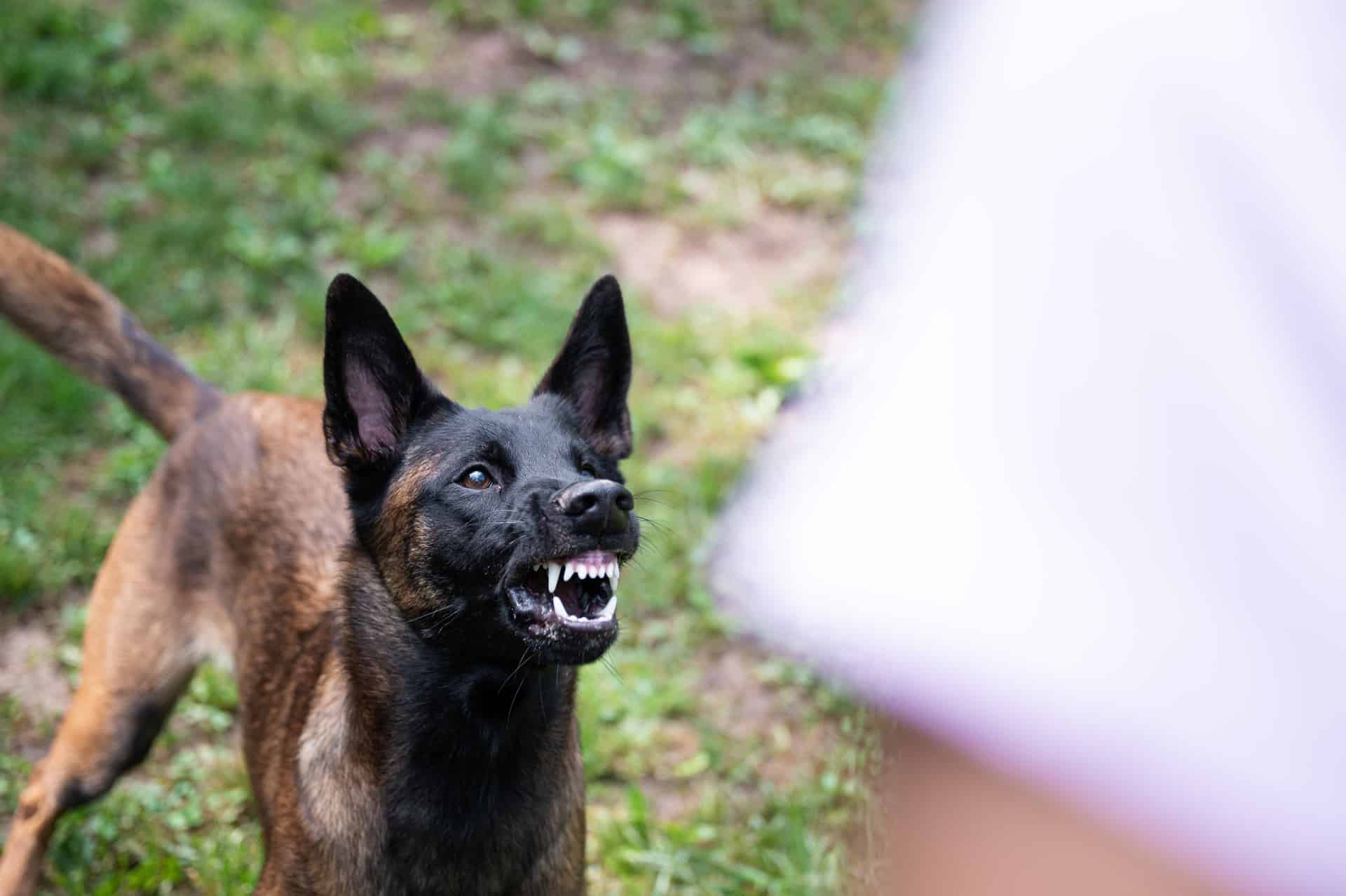The Connection Between Medical Issues and Aggression in Adult Dogs
A strong link exists between medical issues and aggression in adult dogs. Symptoms of pain or sickness could lead to aggressive behavior as a way to manage the situation or communicate their suffering. Cognitive decline due to age or illness can also lead to aggression and confusion.
Medical conditions that might result in aggression include thyroid imbalances, brain tumors, and neurological disorders. Dogs with joint pain or arthritis might become aggressive when touched, especially near the painful area.
If you notice sudden or frequent changes in your dog’s behavior towards aggression, it is important to visit the vet. A full examination could help identify the underlying medical issue, and prompt treatment could ease any pain or discomfort causing the behavior.
Pro tip: Regular checkups and healthy living, including good nutrition and exercise, might help detect medical issues and stop aggression before it becomes a problem.
Medical Issues that Contribute to Aggression in Adult Dogs
Many medical problems may cause adult dogs to be more aggressive or act oddly. Being aware of which medical issues can cause aggression in grown-up dogs can help owners spot the warning signs early. It’s significant for pet owners to comprehend how medical problems can lead to aggression in adult dogs.
Pain and Discomfort
Recognizing pain and discomfort can be key to understanding aggression in adult dogs. Unfortunately, the connection between medical issues and aggression is often overlooked. This can have bad outcomes for both the dog and its owner.
Arthritis is one medical issue that can lead to aggression. It causes joint inflammation and pain, which can cause behavioral changes.
Similarly, dental problems like tooth decay, gum disease, and infections can cause pain in dogs, leading to irritability and aggression.
Ear infections can also cause discomfort and pain, making dogs more prone to aggression.
Finally, hypothyroidism impacts a dog’s metabolism and can result in aggressive behavior.
It’s essential to seek veterinary care if you think your dog might be in pain or discomfort. Treatment can help reduce aggression.
Hypothyroidism
Hypothyroidism can make adult dogs aggressive. It’s when the thyroid gland doesn’t make enough of the hormone. Symptoms include:
- Weight gain
- Tiredness
- Coat looking dull
- Cold intolerance
- Weak muscles
- Being absent-minded or down.
Aggression can also be a sign of hypothyroidism, especially if it comes out of nowhere.
If you think your dog might have it, see a vet ASAP. They will do a blood test to check the hormone levels and normally give medication as a treatment.
Infectious or Viral Diseases
Infectious or viral diseases can cause a range of symptoms in adult dogs – including aggression. Common illnesses include Parvovirus, Distemper and Rabies.
If you suspect your adult dog’s aggression is due to a medical issue, seek help from a vet. A physical examination and tests may be needed to find the cause.
Medical issues that can lead to aggression in adult dogs include:
- Pain and discomfort from arthritis or injuries
- Hypothyroidism or other hormonal imbalances
- Neurological problems like seizures or brain tumors
- Hearing or vision loss.
Tip: Regular vet appointments can help detect and treat any medical issues before they become serious.
Behavioral Changes Linked to Medical Problems
Some pet owners may have spotted their grown-up pooches suddenly displaying aggressive behavior. Such as snarling, barking and growling. Although, there are several causes, one potential cause could be medical issues. This article will look at how medical problems may be linked to aggression in mature dogs.
Increase in Territorial Aggression
If your pup’s territorial aggression is rising, it may be an alert of hidden medical issues.
Common medical issues that can influence your dog’s behaviour are thyroid issues, neurological problems and chronic pain.
These medical problems can cause various behavioural alterations in adult dogs, including aggression, uneasiness and depression.
To rule out medical issues, it is vital to take your canine to a vet for a full exam.
Your vet might do blood tests or imaging scans to detect underlying medical troubles.
Accurate diagnosis and treatment of medical problems may help reduce the aggression in your pup and boost their quality of life.
Heightened Sensitivity or Reactivity
Adult dogs may be more sensitive or reactive due to medical issues, which can lead to sudden aggression. Recognize these signs and take the necessary steps to avoid any accidents.
Possible medical conditions causing sensitivity or reactivity are hypothyroidism, neurological issues, and pain from injuries or arthritis. Look for signs such as growling, snapping, or biting when touched, reluctance to play, and avoiding contact.
If changes in behavior are noticed, consult with a veterinarian right away. They can check for any health problems and provide guidance.
Remember, sudden aggression is not always a behavioral problem. It could be a sign of something else. Taking prompt action can help protect your pet and ensure their well-being.
Decrease in Socialization or Training
A decrease in socialization or training? It could mean your adult dog has medical issues causing behavioural changes like aggression.
Common medical issues leading to aggression are thyroid imbalances, neurological disorders, and pain.
Signs of medical issues to look out for are lethargy, no appetite, changes in bathroom habits, and changes in behaviour or temperament.
Take your dog to a vet to rule out any issues. Plus, working with a professional dog trainer or behaviourist can tackle any behavioural issues and stop future aggression. Pro tip: Regular vet checkups and training are vital for your dog’s health and happiness.
How to Identify Medical Issues in Aggressive Adult Dogs
Aggression in adult pooches may be due to pain or discomfort. The initial step to resolving this is by recognizing and dealing with any medical problems. Here are some of the typical medical difficulties in adult dogs that can result in aggression and how to identify and address them:
Regular Veterinary Check-ups
Regular vet check-ups are key for finding and treating any medical issues that may cause aggression in adult dogs.
Aggression in dogs is usually a sign of an underlying condition, like pain, neurological issues, or thyroid trouble.
The right vet care can help spot and treat these issues before they get worse and cause harm.
Signs that you need to take your pup to the vet include:
- sudden changes in behavior
- aggression
- excessive scratching
- being lethargic
- vomiting/diarrhea
- breathing issues
By taking your dog to the vet frequently and paying attention to signs of health problems, you can protect your pet and those around it.
Observing Behavioral Changes and Scheduling a Veterinary Appointment
Be on the lookout for any sudden or gradual changes in your adult dog’s behavior. This could be a sign of underlying medical issues that are causing aggression. These include:
- Lack of appetite or overeating
- Increased or decreased thirst
- Lethargy or excessive sleepiness
- Increased irritability or aggression
- Repetitive behaviors or obsessive-compulsive tendencies
If you spot any of these signs, get a vet appointment right away. Hypothyroidism, brain tumors, pain from injuries or arthritis can all lead to aggression in dogs. Before tackling the behavioral issues, rule out any medical conditions. Pro Tip: Tell your vet everything you observe and think – they know best!
Diagnostic Testing for Medical Problems
Aggression in adult dogs might be from medical issues. To find the cause, use diagnostic tests. Here are some effective ones:
- Full blood count – checks for infections, anemia, and inflammation.
- Blood chemistry panel – looks at organ function, sugar levels, and electrolyte balance.
- X-rays – helps to spot orthopedic problems, tumors, and other internal things.
- Urinalysis – used to identify kidney function and urinary tract infections.
- Fecal examination – checks for parasites, bacteria, and other gastrointestinal issues.
After finding the cause, a vet can create a plan to address medical issues and improve behavior.
Treatment Options for Medical Issues that Contribute to Aggression
Aggression in adult dogs can have many causes. These include physical pain, unease, fear, anxiety, and hormone shifts. It’s vital to recognize and tackle the medical issues behind a dog’s aggression. Then, successful treatment can move ahead. Here, we’ll go over the medical causes of aggression in adult dogs and the treatments available.
Pain management
Pain management is essential for treating medical conditions that can cause aggression in adult dogs. Pain can lead to fear, nervousness and aggression. This can result in disruptive or destructive behaviour.
There are various pain management options for dogs:
- Medications: Nonsteroidal anti-inflammatory drugs (NSAIDs) can reduce inflammation and pain. Prescription painkillers can also be used, with a vet’s supervision.
- Weight management: Weight issues can give rise to joint pain and other health issues which can cause aggression. Diet and exercise can help alleviate pain and reduce aggression.
- Physical therapy: Rehab exercises like swimming, stretching and massage can help reduce pain and improve mobility for dogs with joint or muscle pain.
- Acupuncture: This complementary therapy can ease pain and inflammation, and promote relaxation in dogs.
It’s important to consult a vet before selecting the best pain management plan for your dog’s medical issues and behaviour.
Hypothyroidism medication
Hypothyroidism is a medical condition where the thyroid gland doesn’t produce enough hormones. Medication with synthetic thyroid hormones is the typical treatment. Examples are levothyroxine, liothyronine, and liotrix.
It’s essential to follow the dosage instructions of your vet and give the medication at the same time daily for best results.
Hypothyroidism is not known to directly cause aggression in adult dogs. But, it’s important to check for any hidden medical issues that could be causing the behavior.
By treating hypothyroidism and other medical issues, you can help improve your dog’s wellbeing. Plus, potentially address any aggressive actions.
Treatment of Infectious or Viral Diseases
It’s important to get quick and effective treatment for viral or infectious diseases. Vaccinations, meds, and supportive care are a few options.
Plus, it’s crucial to treat any medical issues that could cause aggression in adult dogs. Things like pain, hormone imbalances, and nerve problems. This can help reduce aggression and improve life quality.
For the best results, consult a vet and follow their advice for medication, management, and monitoring of the pet’s condition.
Management and Training Strategies for Aggressive Adult Dogs with Medical Issues
Aggression in adult dogs can be caused by various medical conditions. To manage their aggressive behavior, it is essential to identify and solve the underlying medical cause. Furthermore, proper training and management techniques can be used to aid in modifying and handling the aggressive behavior noticed in adult dogs with medical issues. In this article, we will discuss the various medical matters that can cause aggression, as well as management and training approaches you can use with your dog.
Implementing Proper Management Techniques
Aggression in adult dogs with medical issues can be difficult to manage. But, with the right techniques, it can be done!
- Firstly, identify the source of the aggression. If a medical issue is causing it, get help from a vet.
- Secondly, teach them social skills. Know their breed and create a training plan for their needs. Also, set rules and be consistent.
- Lastly, make their environment safe and peaceful to reduce triggers for aggression. With these strategies and professional help, it’s possible to manage aggression in adult dogs with medical issues.
Positive Reinforcement Training
Positive reinforcement training is a humane way to modify aggression caused by medical issues in dogs. These issues can cause the pup to act out, as a way to defend itself. This type of training rewards good behavior, such as ‘sit’ or ‘come’, and not bad ones.
Here are some tips on using it with adult dogs with medical issues:
- Use it to encourage alternate behaviors than aggressive ones.
- Reward calmness with treats or verbal praise.
- Never use physical punishment.
- Everyone should use the same training techniques.
- Short and frequent training sessions work best.
Positive reinforcement training can help dogs with medical issues learn better behavior.
Working with an Experienced Dog Trainer
If your adult dog is displaying aggressive behavior, the first step is to consult a vet to check for any medical issues. Once this has been done, an experienced dog trainer must be consulted to manage and train the dog’s behaviour.
The trainer may suggest strategies such as positive reinforcement – rewarding good behaviour and ignoring/redirecting bad behaviour.
Counter conditioning can change a dog’s emotional response to a stimulus. Desensitization involves gradually introducing the dog to the trigger in a controlled environment until no negative reaction is seen.
Muzzle training is also beneficial to help prevent biting or other aggressive behavior.
Patience and consistency are required when working with a trainer, but the results can be life-changing for both you and your pet.
Conclusion and Final Thoughts
Finally, ruling out medical issues is essential before managing aggression in adult dogs.
Vet visits can detect pain, distress, or health problems which may be causing aggressive behavior.
Aggression in dogs often originates from fear or perceived threats.
Positive training can improve this behavior.
Dog owners must also ensure their pet’s safety by keeping them leashed or in a fenced-off area in public.
Well-trained, socialized dogs are content.
Thus, it’s the owner’s duty to give their pet a protected and relaxed atmosphere.
To conclude: Dogs, just like humans, exhibit a variety of emotions that can change their behavior.
It’s our job as pet owners to provide them with the care and attention they need.
Frequently Asked Questions
1. Why do some adult dogs become aggressive due to medical issues?
Medical issues can cause dogs to be in pain, discomfort, or distress, which can manifest as aggression towards humans, other animals, or themselves.
2. What are some medical conditions that can cause aggression in adult dogs?
Health conditions that may lead to aggression in dogs include thyroid disorders, chronic pain, neurological disorders, and certain medications.
3. How can I tell if my dog’s aggression is due to medical issues?
It’s essential to rule out any physical or medical conditions that could be causing your dog’s aggression. A thorough veterinary exam, including bloodwork and diagnostic testing, can identify any underlying issues.
4. Can medical treatment reduce or eliminate aggression in adult dogs?
In many cases, treating underlying medical issues can reduce or eliminate aggression in dogs. However, it’s not a guarantee, and behavior modification and training may still be necessary.
5. Should I still seek behavioral training if my dog’s aggression is due to medical issues?
If medical issues are the root cause of your dog’s aggression, addressing these issues will be a crucial component of your dog’s treatment plan. However, behavioral training is also critical to help your dog learn appropriate behaviors and how to modify their behavior even when experiencing medical problems.
6. Can aggression in adult dogs be prevented through regular veterinary care?
Preventing aggression in adult dogs through regular veterinary care involves identifying and treating any underlying medical issues and providing training and socialization to prevent potential issues from developing. Early intervention can make a significant difference in preventing aggression from developing or escalating.







